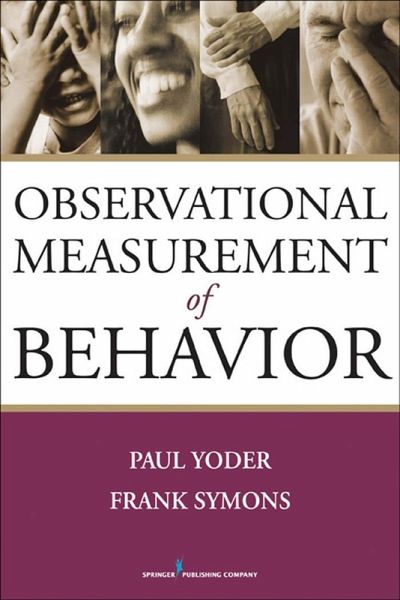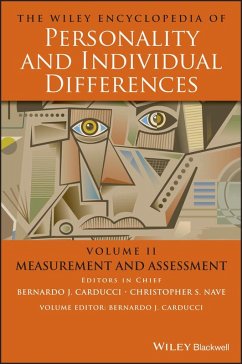
Observational Measurement of Behavior (eBook, ePUB)

PAYBACK Punkte
32 °P sammeln!
"Yoder and Symons bring decades of work to bear and it shows....[The book is] presented with broad scholarship and conceptual depth."óRoger Bakeman, PhD Professor Emeritus Georgia State University"This outstanding volume transcends the typical treatment of behavior observation methods in introductory research texts. Yoder and Symons articulate a set of measurement principles that serve as the foundation for behavior observation as a scientific tool."óWilliam E. MacLean Jr., PhDExecutive Director Wyoming Institute for Disabilities University of WyomingThis comprehensive textbook introduces gr...
"Yoder and Symons bring decades of work to bear and it shows....[The book is] presented with broad scholarship and conceptual depth."
óRoger Bakeman, PhD
Professor Emeritus
Georgia State University
"This outstanding volume transcends the typical treatment of behavior observation methods in introductory research texts. Yoder and Symons articulate a set of measurement principles that serve as the foundation for behavior observation as a scientific tool."
óWilliam E. MacLean Jr., PhD
Executive Director
Wyoming Institute for Disabilities University of Wyoming
This comprehensive textbook introduces graduate students to the competent conduct of observational research methods and measurement. The unique approach of this book is that the chapters delineate not only the techniques and mechanics of observational methods, but also the theoretical and conceptual underpinnings of these methods.
The observational methods presented can be used for both single-subject and group-design perspectives, showing students how and when to use both methodologies. In addition, the authors provide many practical exercises within chapters as well as electronic media files of a sample observation session to code with multiple behavior sampling methods.
Key topics:
óRoger Bakeman, PhD
Professor Emeritus
Georgia State University
"This outstanding volume transcends the typical treatment of behavior observation methods in introductory research texts. Yoder and Symons articulate a set of measurement principles that serve as the foundation for behavior observation as a scientific tool."
óWilliam E. MacLean Jr., PhD
Executive Director
Wyoming Institute for Disabilities University of Wyoming
This comprehensive textbook introduces graduate students to the competent conduct of observational research methods and measurement. The unique approach of this book is that the chapters delineate not only the techniques and mechanics of observational methods, but also the theoretical and conceptual underpinnings of these methods.
The observational methods presented can be used for both single-subject and group-design perspectives, showing students how and when to use both methodologies. In addition, the authors provide many practical exercises within chapters as well as electronic media files of a sample observation session to code with multiple behavior sampling methods.
Key topics:
- Improving measurement of generalized characteristics through direct observation and the generalizability theory
- Developing coding schemes and designing or adapting coding manuals
- Determining sampling methods and metrics for observational variables
- Training observers and assessing their agreement
- Performing sequential analysis on observational data
- Assessing the validity of observational variables
Dieser Download kann aus rechtlichen Gründen nur mit Rechnungsadresse in A, D ausgeliefert werden.













